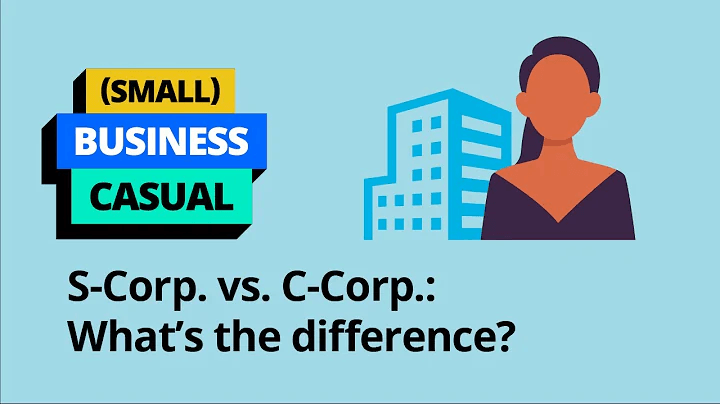Business structure: Selecting the correct legal structure is one of the most challenging things you have to do when starting a business. Two forms are especially frequent: C corporation (C Corp) and S corporation (S Corp). Both have advantages and disadvantage that may influence the taxation of the property and ownership in various ways. In this detailed article, you will be able to learn important points of comparison between C Corps and S Corps to assist in your decision for your enterprise.
What is a C Corporation?

A C Corporation is a legal structure of trading that has its own identity and offer limited liability protection from its shareholders. It is also often preferred by large businesses because of the versatility in stock release and possible expansion.
Key Features of a C Corporation

- Unlimited Shareholders: C Corps can have as many shareholders as it wishes, and therefore should have an easier time at funding.
- Multiple Classes of Stock: They can also offer a range of stock, which may include; common stock that provides for different voting rights and the preferred stock to allow for differential dividend payments.
- Separate Taxation: C Corps are different from their owners in terms of taxation. Thus the corporations directly taxes its profits while shareholders also tax any dividends that may be issued to them. This may cause what is known as tax duplication.
- Perpetual Existence: It remains as a legal entity needing not ownership transfer or the death of its owners to dissolve it.
Advantages of a C Corporation

- Attracting Investment: C Corps can sell more stocks to investors since they have the capacity of issuing more than one category of share and the quantity of shareholders does not have the limit.
- Enhanced Credibility: C Corps are considered to be more stable and credible, and such corporations will easily secure business with other business organizations.
- Employee Benefits: This they can do while providing wider packages to the employees in terms of employee benefits such as stocks and other retirement products.
Disadvantages of a C Corporation

- Double Taxation: Corporate earnings are subject to corporate tax while dividend income is taxed on the shareholders personal tax return.
- Complexity: C Corps are burdened with many formalities like holding annual meetings and maintaining more elaborate records.
- Cost: Compliance with all the legal and regulatory requirements can end up being expensive especially for C Corps, both legal and accounting fees can be steep.
What is an S Corporation?

An S Corporation is a classification of a corporation where a corporation can not be subjected to two types of taxes. The organisation does not pay taxes directly Instead shareholders declare profits and losses on their income tax returns.
Key Features of an S Corporation

- Pass-Through Taxation: It’s easy to pay taxes because profits and losses go through to the shareholders meaning that the company is not taxed again.
- Limited Shareholders: S Corps can only have up to 100 shareholders, and all the shareholders are residents of the United States.
- One Class of Stock: They can have only one type of stock which means that there is not much freedom in the way the ownership and dividend are planned.
- Restrictions: S Corp also has limitations as to who can act as shareholders in the company and these include other corporations and partnerships.
Advantages of an S Corporation
- Avoid Double Taxation: Unlike C Corps, shareholders experience no double taxation because profits and losses are filtered to shareholders.
- Simplified Accounting: S Corps normally make less formal legal demands than C Corps, and this can therefore decrease costs.
- Tax Savings: S Corp is also advantageous to the shareholders in that he or she can cut their self-employment taxes.
Disadvantages of an S Corporation
- Shareholder Restrictions: The regulation that the company must have 100 or fewer shareholders and that such shareholders must be US citizens or residents can limit business expansion and investment.
- Stock Limitations: The prohibition of issuing more than one class of the share capital can restrain the company’s freedom to reach resources and define ownership.
- Eligibility Requirements: S Corp status is not perfectly available to every business andSelective organizations, some entities, are not allowed to be shareholders.
C Corp vs. S Corp: A Side-by-Side Comparison
| Feature | C Corporation | S Corporation |
| Taxation | Double taxation (corporate and dividends) | Pass-through taxation |
| Shareholders | Unlimited | Up to 100, must be U.S. citizens/residents |
| Stock Classes | Multiple classes allowed | Only one class allowed |
| Corporate Formalities | More complex (meetings, record-keeping) | Less complex |
| Investment Potential | Higher potential due to flexibility | Limited by shareholder restrictions |
| Employee Benefits | More extensive options available | Limited compared to C Corps |
Making the Right Choice for Your Business

In simple terms, whether you should form a C Corp or an S Corp depends on various factors such as; the aim of the business, the number of shareholders and the mode of assessment.
Considerations for Choosing a C Corp

- Growth and Investment: If you intend to seek a large amount of capital and / or sell different types of shares, then a C Corp structure will be advantageous.
- Global Reach: Even if they do not have global operations and have no intention of being listed on the stock exchange, a C Corp would suit businesses that have global interests or future plans of being listed.
Considerations for Choosing an S Corp
- Tax Benefits: If an aim is non-american taxation and you have a lesser amount of shareholders from the U.S., then maybe S Corp is more advantageous.
- Simplified Structure: An S Corp may be more preferable to businesses that seek easier regulatory laws and formalities.
Conclusion
Each C Corps and S Corps has its own advantages and disadvantages which have a huge effect in your business activities as well as taxes. It is wise to comprehend these differences so as to find the best solution, suitable for your business mentality and existence.




